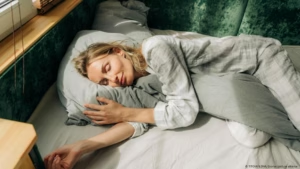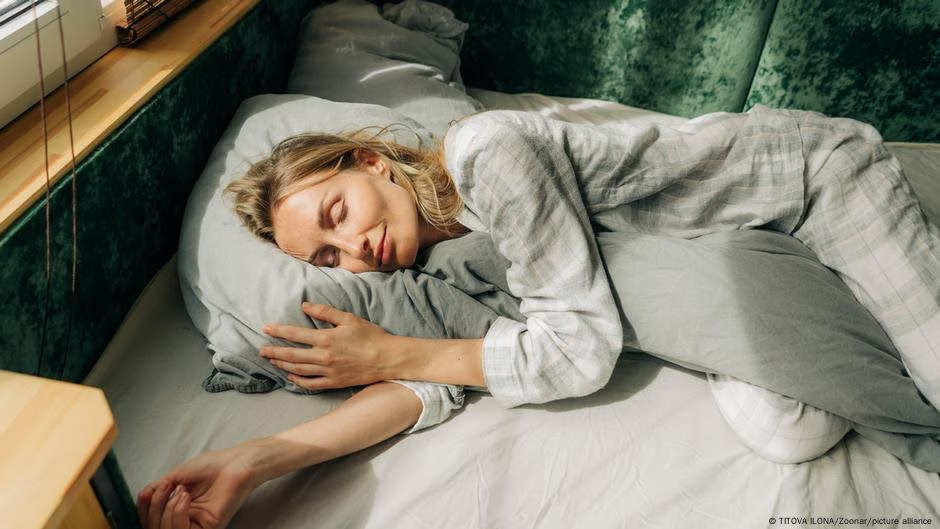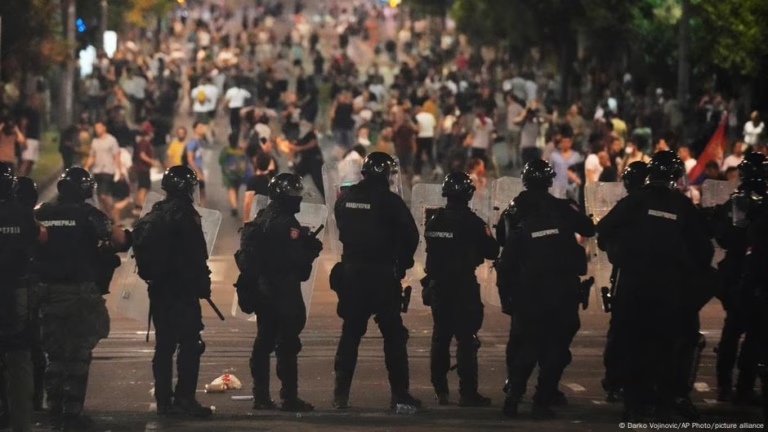<
div data-tracking-name=”rich-text” data-tracking-skip=”true”>One in three adults report some sort of insomnia, with around half of those saying it disrupts their functioning during the day.
It gets even worse in summer. Heatwaves significantly disrupt sleep quality — studies show that even short heatwaves lasting one or two days can reduce sleep duration by more than an hour each night.
Heat reduces sleep quality and duration by interfering with the body’s natural cooling process, which is crucial for initiating and maintaining sleep.
That’s why keeping your bedroom cool during the day with shades and fans can greatly improve sleep quality. A dark and quiet environment to sleep in is also beneficial.
But what other tips are there for getting to sleep on hot nights?
Exercise during the day
There is robust scientific evidence that exercise improves sleep quality and duration, particularly for those with sleep disorders.
On average, adults who exercise for at least 30 minutes a day sleep an average of 15 minutes longer than those who do not.
Physical activity can promote better sleep in several ways. It increases the production of melatonin, a hormone that regulates sleep-wake cycles, helping you fall asleep more quickly.
Exercise also reduces stress, which is a common factor in difficulties falling and staying asleep.
That’s why exercise is recommended as one of several treatments for people with sleep disorders. Studies have shown that moderate-intensity aerobic exercise improves sleep among patients with insomnia.
Avoid evening coffee
You still have half of the caffeine in your system 6-8 hours after you consume it. That’s why drinking coffee in the afternoon or evening can reduce the duration of sleep by around 45 minutes, according to one meta-analysis.
To avoid reductions in total sleep time, the researchers of that analysis recommended consuming coffee no later than 8.8 hours before bedtime.
Reduce screen time before bed
Another big culprit of sleep disturbances is screen use before sleep.
One study found an hour of screen use in bed increases your risk of insomnia by 59% and lowers sleep duration by an average of 24 minutes per night.
The study is part of growing evidence showing that phone or laptop use before bed negatively affects sleep habits.
There’s a common belief blue light emitted from screens tricks the body into thinking it’s time to wake up. But this isn’t quite right. Glasses or apps that block blue light on your phone or laptop don’t necessarily improve sleep — what’s more effective is turning down the brightness or reducing screen time.
And even better than that is to reduce screen time before bed. Instead, try reading a book. Studies show reading in bed does improve sleep quality.
<
div class=”vjs-wrapper embed big”>
In Good Shape — How sleep is affected by daily life
<video id=”video-71306345″ controls=”” playsinline=”” preload=”none” poster=”data:image/png;base64,iVBORw0KGgoAAAANSUh
Source: https://www.dw.com/en/trouble-sleeping-here-s-how-to-fall-asleep-quickly/a-73214239?maca=en-rss-en-all-1573-rdf







